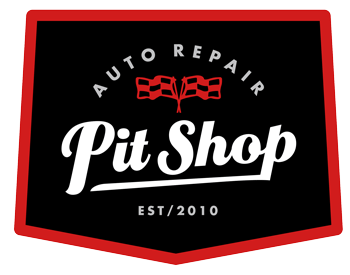The Pit Shop Garage in Libertyville IL sees it all the time: People will pull in with a car or truck that looks perfectly fine on the surface. It might even be well maintained: Oil changed, tires rotated, brakes aligned, the works. But all you have to do is touch the hood or even sit in the driver’s seat and you’ll feel it before you see it: Overheating.
How does this happen? Why are even the healthiest cars brought down by the heat? Well, the first thing you have to understand is that cars are always breaking down. From the moment they are first turned on in the factory, they are aging and getting closer to just being scrap metal. Heat accelerates that process.
In particular, heat can wear down every part of a car. And when every part of car malfunctions a little, it affects a car’s performance a lot. This is what it means to overheat. Here are the signs for when that happens.
- Squealing When Breaking or Accelerating
This is one of the easier issues to notice, and there is a reason for that. There are two components at fault here: Your brakes, and a part of your engine called the “serpentine belt”. In both cases, their designers knew they were prone to breaking down in certain ways. The squealing noise is there to signal that it’s happening.
Some people love this, some people hate it. Mechanics are begging you to listen to it, as it means that the heat is wearing these parts down, and these are not parts that you want breaking down on you. Get them checked.
- Poor Gas Mileage
This is a subtle sign at first, but it will get obvious once it happens more than once. The thing is, at certain heats gas will vaporize in the tank. This is another issue with cars that designers accounted for, and there are tubes in the gas tank that can deliver vaporized gas to the engine. Still, it is really inefficient.
The big issue is, in addition to the gas efficiency problems, those hoses are actually pretty fragile. The constantly changing pressure being placed on them can create faults and raptures, at which point the vaporize gas will escape the engine system completely. If you notice a drop in gas mileage, have this looked at.
- Your car is Literally on Fire
This is rather obviously the worst thing that can happen on this list. But it was saved for last for a reason: It is uncommon for things to come to that. It is important, however, to know how and why this happens.
Earlier it was mentioned that a lot of little problems can add up to one big problem. That is basically how engine fires happen. Maybe you have a stripped serpentine belt. Maybe you have leaks in your gas system. Both of those problems build up their own heating issues in the car.
How many more issues can your car take before the cooling system fails to keep up? If you run out of coolant the risk of an engine fire becomes exponential.
In short, try to keep up with your car’s heating problems. It’s one thing to have loud, squealing brakes. It is an entirely different thing to have an engine that catches on fire in the grocery store parking lot.
